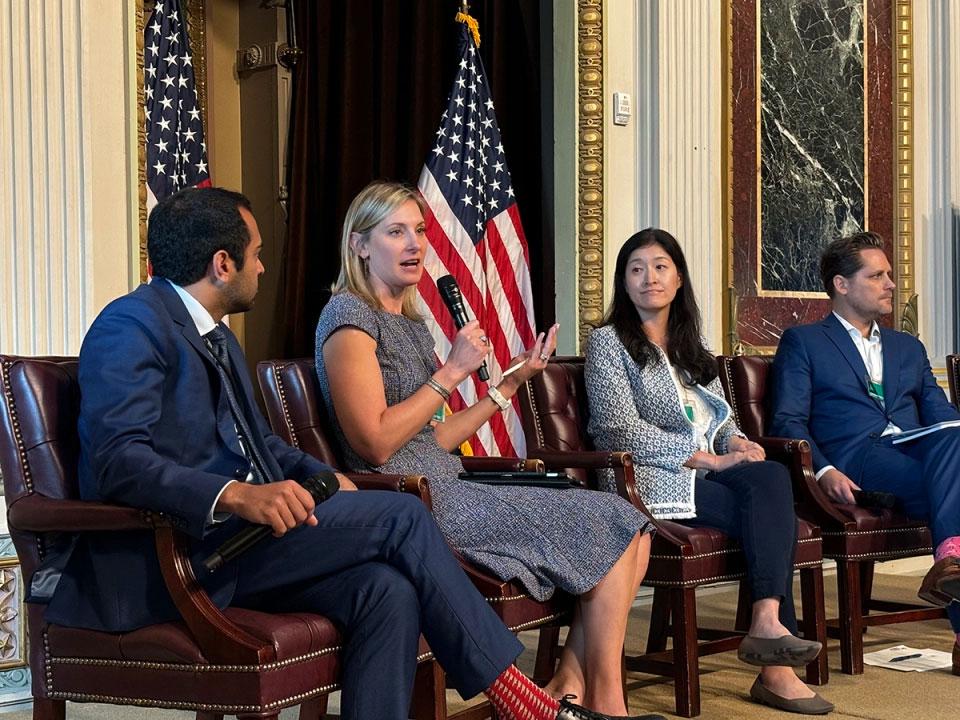This summer, BMO was invited to the White House by the National Economic Council (NEC), along with representatives from federal agencies, legislative offices and the employee ownership community for a White House first.
One topic of discussion? Employee Stock Ownership Plans, also known as ESOPs.
This was the first time a presidential administration has hosted prominent inter-agency meetings on employee ownership, but it’s never been more timely as a wave of baby boomers – and their privately held businesses – are starting to think about retirement and transition planning. ESOPs, which allow a business owner to sell their company back to employees, have existed in the U.S. since 1974, but are gaining momentum globally.
Sharing our ESOP expertise in this USD$2 trillion (and growing) market
BMO’s Leah Turnbull, Managing Director and National ESOP Practice Lead, Corporate Advisory, spoke on a panel about how companies can access capital as they’re looking to make the transition.
BMO’s ESOP practice is nationally recognized – not just anyone gets an invite to the White House, and BMO was the only bank in attendance. Our Corporate Advisory team has been leading the charge to support employee-owned companies across all industries in the U.S. Whether it’s forming an ESOP or navigating an existing plan, our team works with businesses to find solutions to maintain legacies and provide for their employees while maximizing performance.
We’ve also been a key voice in championing adoption of Employee Ownership Trusts (EOTs) – Canada’s response to expanding employee ownership. After decades of supporting successful employee-owned businesses in the U.S., we’ve seen how the model benefits business owners and employees alike. Christine Cooper, Head of Canadian Commercial Banking, sits on the steering committee of the Canadian Employee Ownership Coalition, which was instrumental in driving EOT legislation forward in Canada. With approximately 76 per cent of Canadian business owners expressing plans to retire in the next decade, this newly passed legislation opens a new market opportunity that BMO is well positioned to take advantage of.
